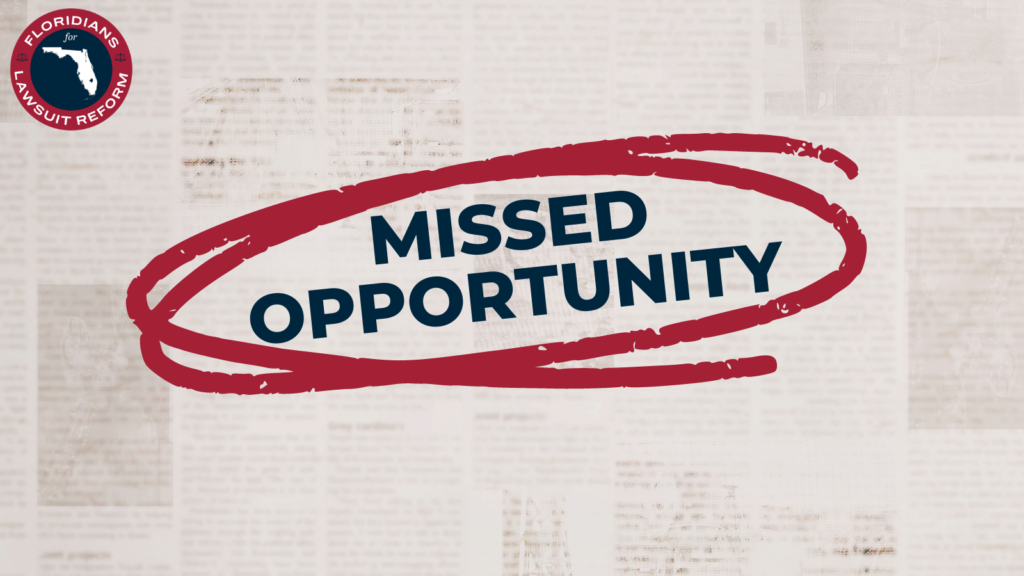Published 6 days ago on March 17, 2022 By Mark Parker

Florida’s Legislative Session ended Monday after lawmakers passed a record $112 billion budget – and while those on the receiving end of the historic funding are happy with the session’s outcome, the bills that did not make it through could cause frustration for many others.
St. Petersburg Senator Jeff Brandes told the Catalyst he believes his colleagues in the Legislature dropped the ball on some critical issues the average Floridian is facing. Chief among those is property insurance reform, addressing affordable housing and restructuring a criminal justice system that he repeatedly warns is on the verge of collapse.
“These are things that people expect us – the legislature – to address,” said Brandes. “We failed.”
Instead of exploring sentencing reform and increasing parole opportunities or other diversionary measures, Brandes said lawmakers chose to build new prisons. While the demand for housing outpacing supply and soaring rents continue leading to the displacement of residents throughout Tampa Bay and the state, he said state lawmakers did nothing substantial to address affordable housing challenges.
Brandes believes the House went as far as it was willing to go on affordable housing during last year’s session. He said with the governor’s support, the Senate sent several proposals to the House. However, the two branches could not agree on any new bills. He added that House Democrats favored new housing legislation but believed the legislation put forward by the Republican majority either “didn’t do enough or didn’t do anything.”
“Ultimately, you have to have the House and Senate agree,” said Brandes. “And the House was just unwilling to agree.”
Brandes is also a vocal proponent of property insurance reform. The Senate passed bill SB 1728, which sought to reduce frivolous insurance claims and lawsuits, provide easier processes for private companies to withdraw policies from the state-run Citizens Property Insurance (CPI) and enact a roof deductible.
However, House Speaker Chris Sprowls failed to take up the measure, even as private insurers collapse or cannot afford to conduct business in Florida. Far too often, said Brandes, a situation must reach a “state of utter crisis” before the Legislature is willing to act. He relayed that the Insurance Consumer Advocate said residents are on life-support, and Barry Gilway, president of CPI, said the entire market is in collapse.
“Apparently, that wasn’t enough to motivate them,” added Brandes.
While four insurance companies have failed in the last year and a half, resulting in the cancellation of over 100,000 policies, Brandes said lost revenue forces others to withdraw from the state. He noted that St. Petersburg-based ASI, a division of Progressive, lost $250 million last year and “basically shut down” its Florida operations.
Reinsurance renewals are due June 1, and Brandes said many companies would fail to secure the reinsurance necessary to withstand the upcoming hurricane season. He said that would essentially force those companies out of business.
“With short notice, at the worst possible time – in the middle of hurricane season,” he said. “People will be scrambling to find new insurance.”
Brandes noted the Florida insurance market lost $1.5 billion in 2020 – and another $1.6 billion in 2021. All without a major hurricane hitting the state. He also pointed out that property insurance companies in Florida faced over 100,000 lawsuits last year, while every other state in the nation averages less than 1,000 annually.
However, Brandes said the focus is not on saving insurance companies. Instead, it is the consumers that suffer the most. He called the companies “big boys” who will figure out a new business model while homeowners face soaring rates and canceled policies. Brandes also called property insurance the “Achilles heel” of the affordable real estate market.
“Rates are going up 30% a year,” he said. “We had a company file for a 111% rate increase a month and a half ago.
“St. Johns raised their rates 100% in the last two years and still failed.”
Brandes believes the governor will call a special session to address the issue, instead of owning a crisis during an election cycle. Although the Legislature missed the window to address reinsurance rates, he would advise the governor to schedule a special session in the next 30 to 60 days.
Although Brandes called this year’s session a trial balloon for the governor’s presidential run – and said many of the bills that passed were solutions in search of a problem – he did point out measures that would have a positive impact on St. Pete.
The Legislature increased funding to build the 2nd District Court of Appeals by $15 million, bringing the total amount to $65 million. Brandes said construction on the courthouse, adjacent to City Hall, begins in September.
Brandes said increasing funding for the University of South Florida St. Petersburg’s College of Nursing, College of Business and operational budget would have a meaningful impact on the community. He added that the $75 million allocated for the Environmental & Oceanographic Sciences research facility would transform USFSP’s identity.
“I think we’ve now firmly cemented USF St. Petersburg as a preeminent institution. To make it essentially the crown jewel of the USF system – which is our goal.”
